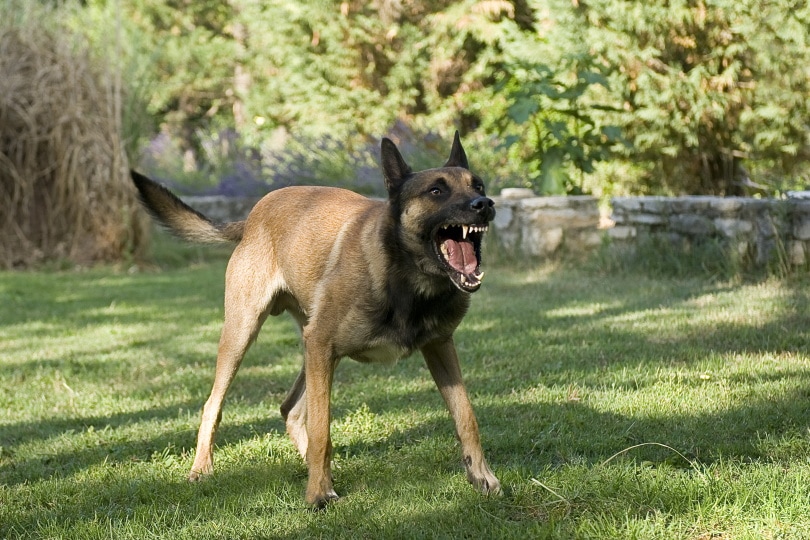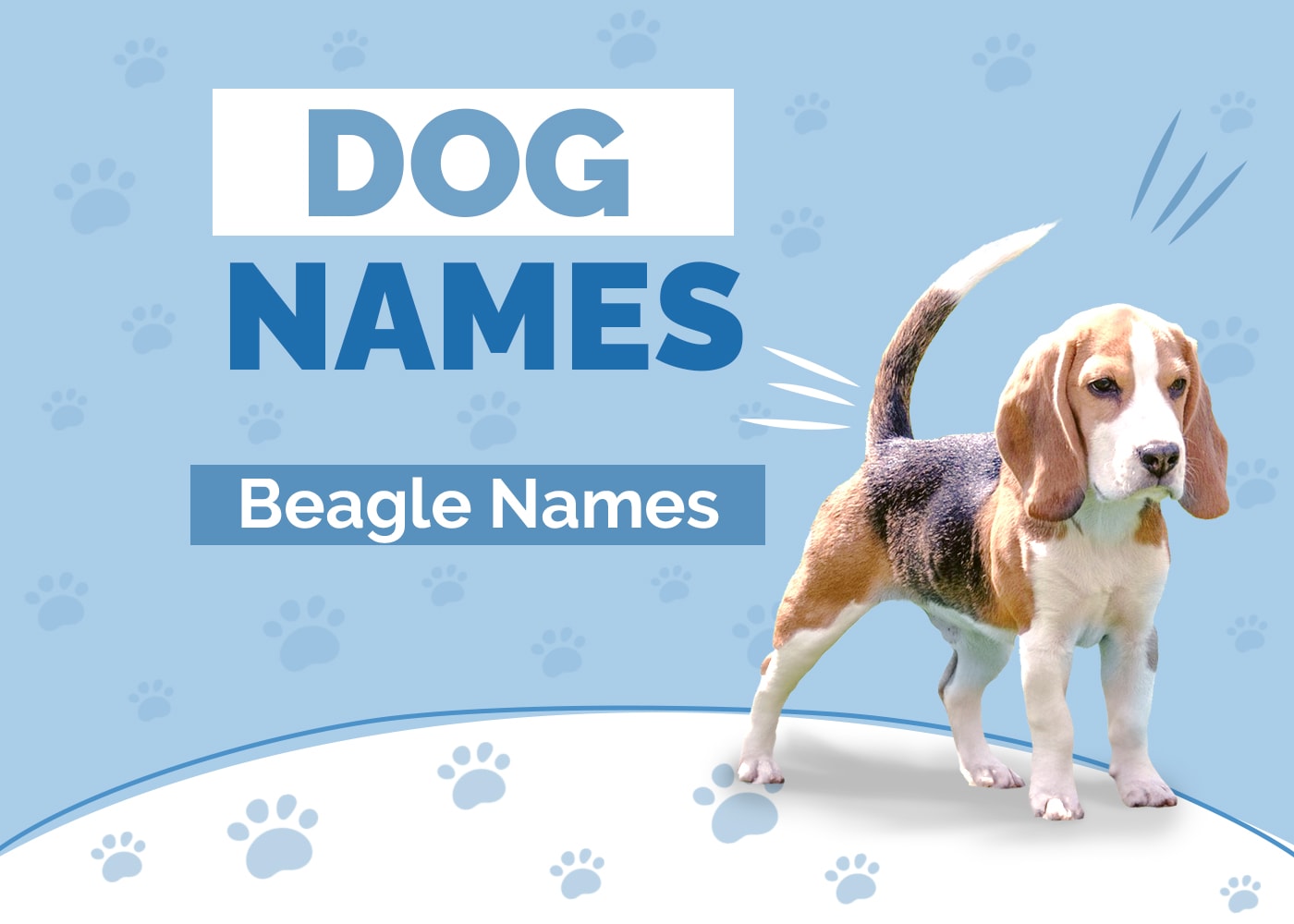Why Dogs Eat Cat Poop: 6 Reasons, Prevention, & FAQ
Updated on
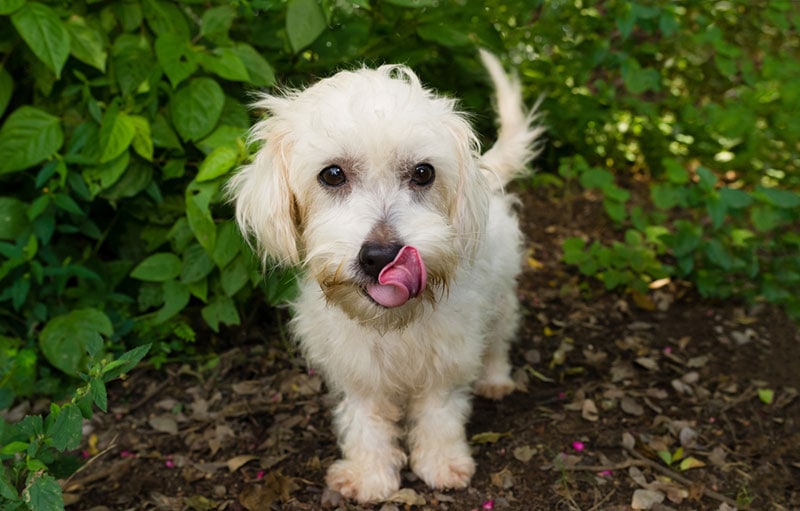
Click to Skip Ahead
If you’re a dog parent, you know that these four-legged creatures have all kinds of funny and weird behaviors, such as eating strange things, including cat poop. Eating poop is also known as coprophagia, and it’s perfectly normal for puppies, but if it continues into adulthood, it may cause several problems.
If you’ve noticed your dog munching on cat feces, you may have been shocked and maybe even slightly disgusted. Why do dogs eat cat poop?
Let’s unravel the truth behind this strange behavior, if eating cat poop is dangerous to dogs, and how to prevent the behavior in your furry companion.
The 6 Reasons That Dogs Eat Cat Poop
1. Habit
Much like humans, dogs are creatures of habit. Many dogs like to scavenge for food, which can include things like cat poop or even their own feces.
This is a habit that dogs can carry from their puppyhood, as it’s perfectly normal for a mother dog to consume the feces of their pups in order to keep their den clean and neat.1 They will typically continue this behavior until their babies stop weaning, but many puppies will copy this behavior from their mothers and then continue it in adulthood.
2. Boredom
It’s typical for puppies or dogs that are bored to do all kinds of strange things to entertain themselves. If they find your cat’s litter tray, they’ll explore everything inside and maybe even get a taste. Dogs usually consider cat feces as treats, which may cause them to repeat this behavior.
Dogs and puppies that are regularly active and get plenty of exercise and playtime are less likely to get bored and therefore develop this problem.
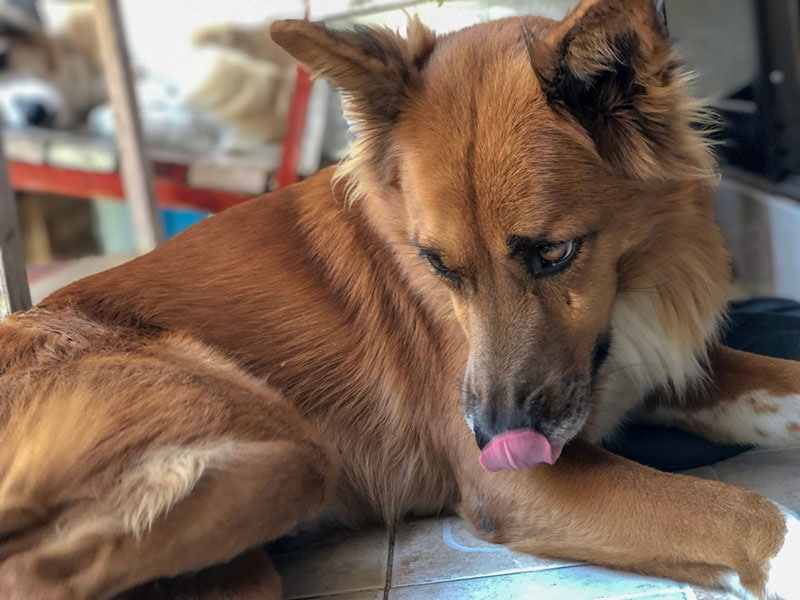
3. Other Behavioral Reasons
Besides habits and boredom, other behavioral issues can lead to your furry companion eating cat poop. Some dogs may consume feline feces if they’re craving your attention, as they are trying anything to get you to notice them.
It’s also possible for dogs to eat cat poo when they’re stressed or anxious. This behavior can be comforting for canines because it’s similar to what they used to do as puppies.
Simple curiosity can often take dogs to strange places, resulting in them sniffing, touching, and eating all kinds of strange stuff, including feline poop.
4. Taste
Some dogs like the taste of feces. Most cats consume foods similar to a dog’s diet, and canines can often smell the strong scent of digested food from the cat’s poop, which draws them to eat it.
Since dogs are often attracted to the scent and taste of feces, they may even consume their own poop or the poo of your other pets. Once the poop passes their standards of taste and quality for edible items (which usually happens straight away, as dogs like to eat weird stuff), they may continue this habit throughout their life.
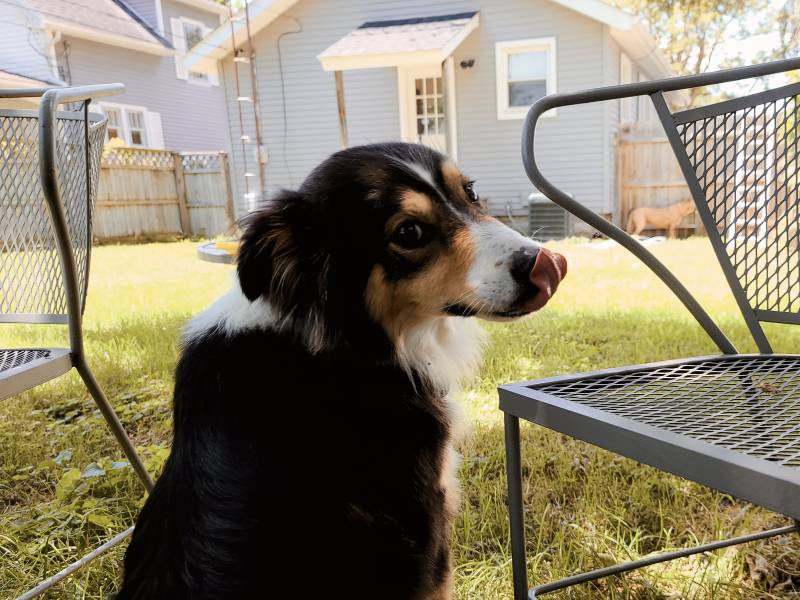
5. Nutrient Deficiency
This situation is not that common, but it’s possible for dogs to eat cat poop due to nutrient deficiency. Canines can experience deficiencies when fed unsuitable foods (certain homecooked meals/non-AAFCO-certified foods) that don’t meet all their nutritional needs.
These dogs may suffer from malnutrition and seek out the required nutrients elsewhere. Your cat’s litter box may look like the perfect place to find tasty, easily digestible treats that are also full of protein.
6. Medical Problems
In most cases, coprophagia has a behavioral cause, but dogs may engage in eating cat poop for a medical reason. Medical problems in dogs that can lead to coprophagia include:
- Intestinal parasites
- Poor intestinal absorption
- Hormonal imbalances
- Endocrine imbalances
- Cognitive dysfunction
If this behavior started recently, it’s best to monitor your dog for other changes, and speak to your vet if necessary. If the veterinarian finds an underlying medical cause for your dog eating cat poop, it will be easier to resolve the problem.
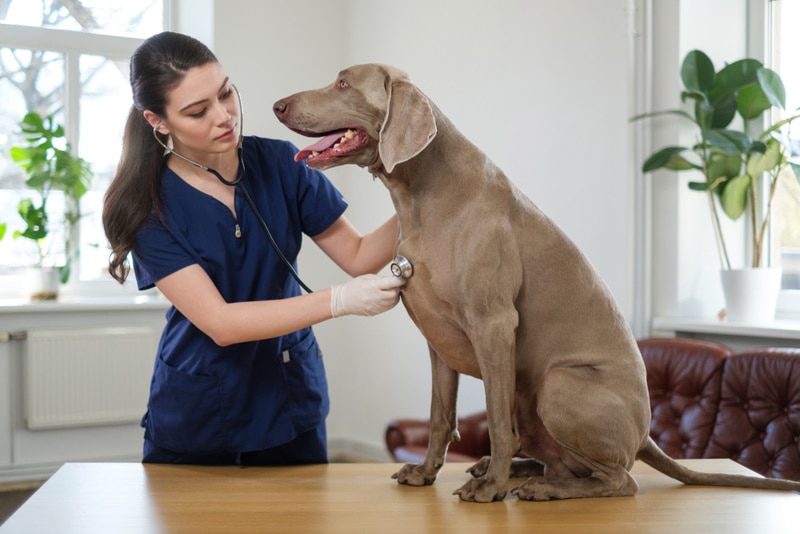
The 6 Ways You Can Prevent Your Dog From Eating Cat Poop
The first step toward resolving this problem is to speak to your vet to rule out any medical conditions that may be causing your dog to consume poop. If your dog is healthy, there are several things that you can try to prevent your dog from eating cat poop.
1. Never Punish Your Dog for Eating Poop
Most people consider any kind of poop-eating to be gross, and the situation might be even worse if your dog completely empties your cat’s litter box. However, it’s up to you to rise to the situation and react calmly.
Reacting negatively, yelling, or punishing your dog could easily backfire and lead to more cat poop eating, which is probably not something that you’re looking to achieve.
So, try to stay positive or don’t react at all. Seek positive reinforcement training methods in which you can encourage your dog to stop this behavior.
2. Move/Change the Cat Litter Box
If you’ve noticed that your dog has been eating cat litter straight out of the litter box, it might be a good idea to move or change it.
If you decide to move the litter box, relocate it to a hard-to-reach location that your dog won’t be able to access, as that will decrease the chances of poop eating. If you decide to change it, look for sealable and dog-proof litter boxes.
Another helpful tip is to try to maintain good litter box hygiene and clean it as often as possible to prevent feces from collecting inside. This way, there will be fewer chances for your dog to consume them.
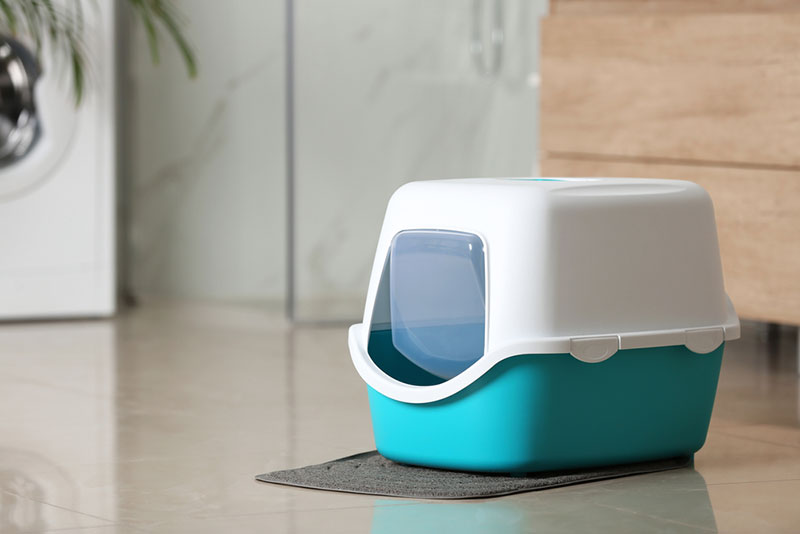
3. Repel Cats From Your Yard
If you don’t have cats in your home, but your dog consumes cat poop outside in the yard due to neighboring or stray cats, look for ways to repel them from your space. Although this may be easier said than done, there are several ways to repel unwanted felines from your property, including:
- Use scents that cats dislike (lavender, rue, etc.) to repel them.
- Wash your yard frequently.
- Create a mesh fence that should act as a barrier.
- Invest in sprinklers, as they should also repel cats.
4. Keep Your Dog Stimulated (Both Mentally and Physically)
Dogs may eat poop out of boredom, stress, or anxiety, which is why you should keep your furry friend mentally and physically stimulated and engaged to prevent this behavior. Dogs are naturally curious, so ensure to provide them with plenty of playtime and exercise to entertain them and hopefully deter them from consuming feces.
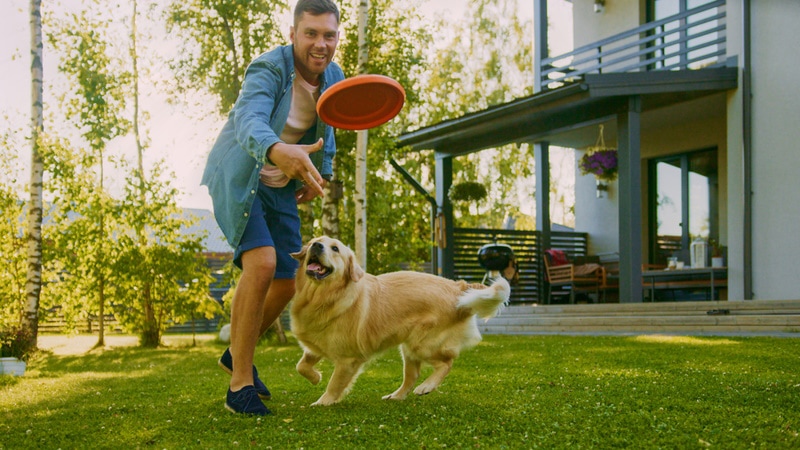
5. Ensure That Your Dog Has a Well-Balanced Diet
Some dogs may consume cat poop due to nutrient deficiencies, as cat poop contains plenty of protein. If your dog suffers from malnutrition, you should ensure that they have a well-balanced diet, as that should decrease the chances of their eating poop.
If you’re unsure about the foods that you should include in your dog’s meals, it’s best to consult your vet for additional advice. Your dog’s diet should be appropriate for their age, activity level, and similar factors.
6. Be Patient
For dogs, eating cat poop can be a hard habit to break, so you shouldn’t rush into stopping the behavior. While the ultimate goal is for your dog to stop eating cat poop, try to approach this problem calmly and be patient. Give your furry companion all the necessary time to learn how to stop this craving, and practice positive reinforcement throughout the process.
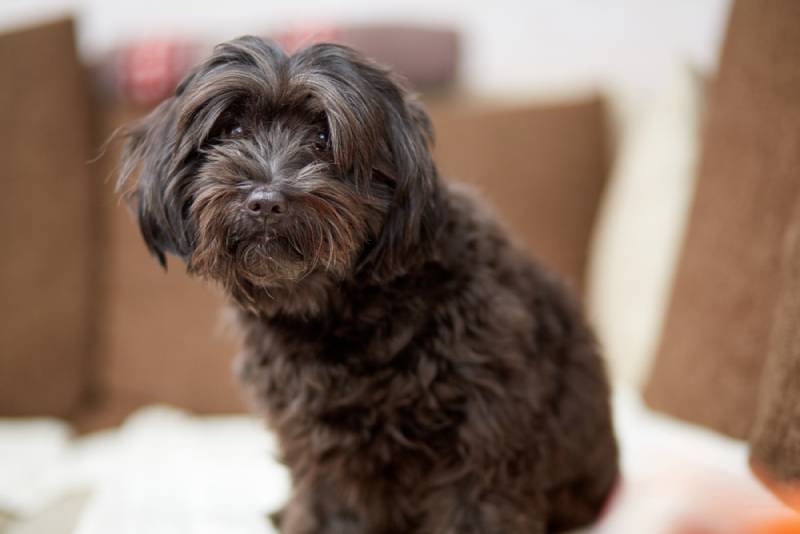
Frequently Asked Questions
Is It Normal for Dogs to Eat Cat Poop?
Dogs are natural explorers, and with their curious nature and genetics, it’s normal for them to eat trash and other weird stuff. Since it’s common for mothers to eat their puppies’ poop to clean the environment, many dogs pick up this habit in puppyhood.
However, just because consuming cat poop may come naturally to dogs, that doesn’t mean this behavior is good for them. Eating the feces of other animals carries several risks, which is why it’s best to deter your canine from engaging in such behavior.
Is Eating Cat Poop Bad for Dogs?
Eating cat poop or the poop of any other animal could potentially be harmful to dogs. They could unintentionally get various diseases, bacteria like Salmonella, and intestinal parasites.
If the feline whose poop your dog is eating is on any medication, that could also negatively impact your canine. Consuming too much poop could also lead to gastrointestinal issues and cause constipation.
Another thing to consider is general hygiene, as dogs often lick their family members and everything around them. Spreading poo and associated germs through saliva is quite possible if your dog likes to consume cat poop. To be safe, always practice good hygiene when handling your four-legged companions, and work to prevent your dog from eating cat poop.
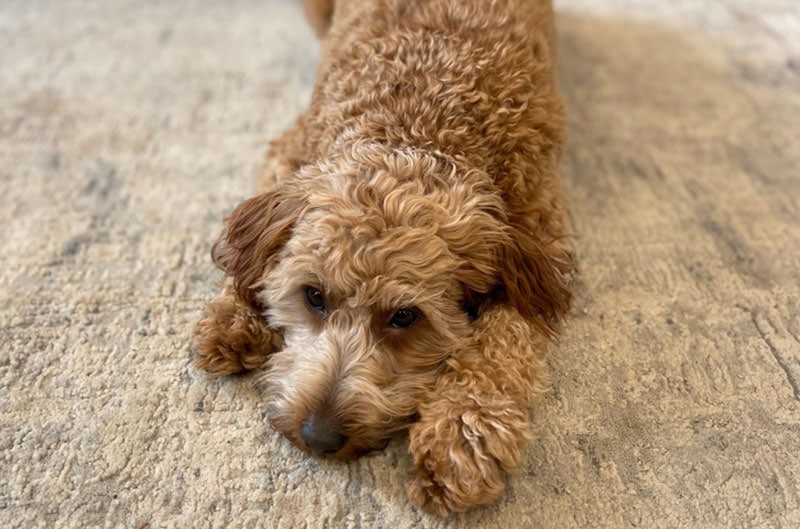
How to Clean Your Dog’s Mouth After They Eat Cat Poop
One of the grossest things about your dog eating cat poop is the fact that your furry friend will likely try to lick you or other family members after the fact. Therefore, you should know how to clean your dog’s mouth after these incidents happen. Here’s a list of tips that might help:
- Provide them with food and water, as this should wash away the bad smell and taste from their mouth and help them freshen up.
- Use a soft cloth or alcohol-free wet wipes to wipe the area around your dog’s mouth.
- If you have a doggy toothbrush, brush your dog’s teeth to kill bacteria and get rid of unpleasant breath odors.
- Give your dog a dental stick.
- Make the clean-up process as stress free as possible; otherwise, your dog may feel anxious and just go eat more poop.
Conclusion
There are many reasons that dogs eat cat poop. Some do it out of habit, boredom, stress, or anxiety, while others do it due to medical reasons or health problems like nutrient deficiency.
Consuming feces from other animals is a common behavior in dogs, but it carries risks, which is why it’s best to prevent your dog from eating cat poop.
You Might Also Be Interested In:
- Why Do Dogs Eat Rabbit Poop? 6 Vet-Reviewed Reasons
- Why Do Dogs Eat Snow? Is It Safe? 4 Common Reasons
Featured Image Credit: David P Baileys, Shutterstock




